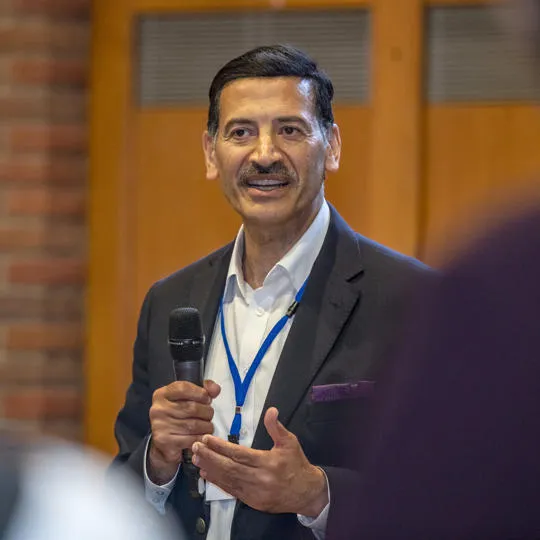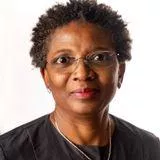Forced displacement is a truly global issue and one that we can only respond effectively to by working together to develop impactful interventions, as has been demonstrated by the cross-sectoral responses we have witnessed being put into practice over the last year.
Professor ‘Funmi Olonisakin, Vice President (International, Engagement & Service), King’s College London
27 April 2023
Symposium brings leading voices together to better support Ukraine and beyond
Universities, charities and donors at the forefront of supporting students and academics impacted by the war in Ukraine came together at King’s to reflect on the last year and look to the future.

The ‘Academic Sanctuaries Symposium: Ukraine and Beyond’, co-hosted by King’s and XTX Markets, brought together leading voices across the UK Higher Education (HE) sector to reflect on the holistic and integrated support they are providing to people whose studies or research has been disrupted due to forced displacement.
Through a series of panel discussions and speeches, the symposium offered an opportunity to consider what the key challenges and learnings have been, and how to improve the frameworks and initiatives currently available.
A number of Ukrainian students and academics were also in attendance to share their first-hand experience of how the collaborative approach driven by the HE sector over the last 12 months has enabled them to continue with their education or work.
Professor ‘Funmi Olonisakin, Vice President (International, Engagement & Service) at King’s, addressed the audience virtually from Nairobi, Kenya.
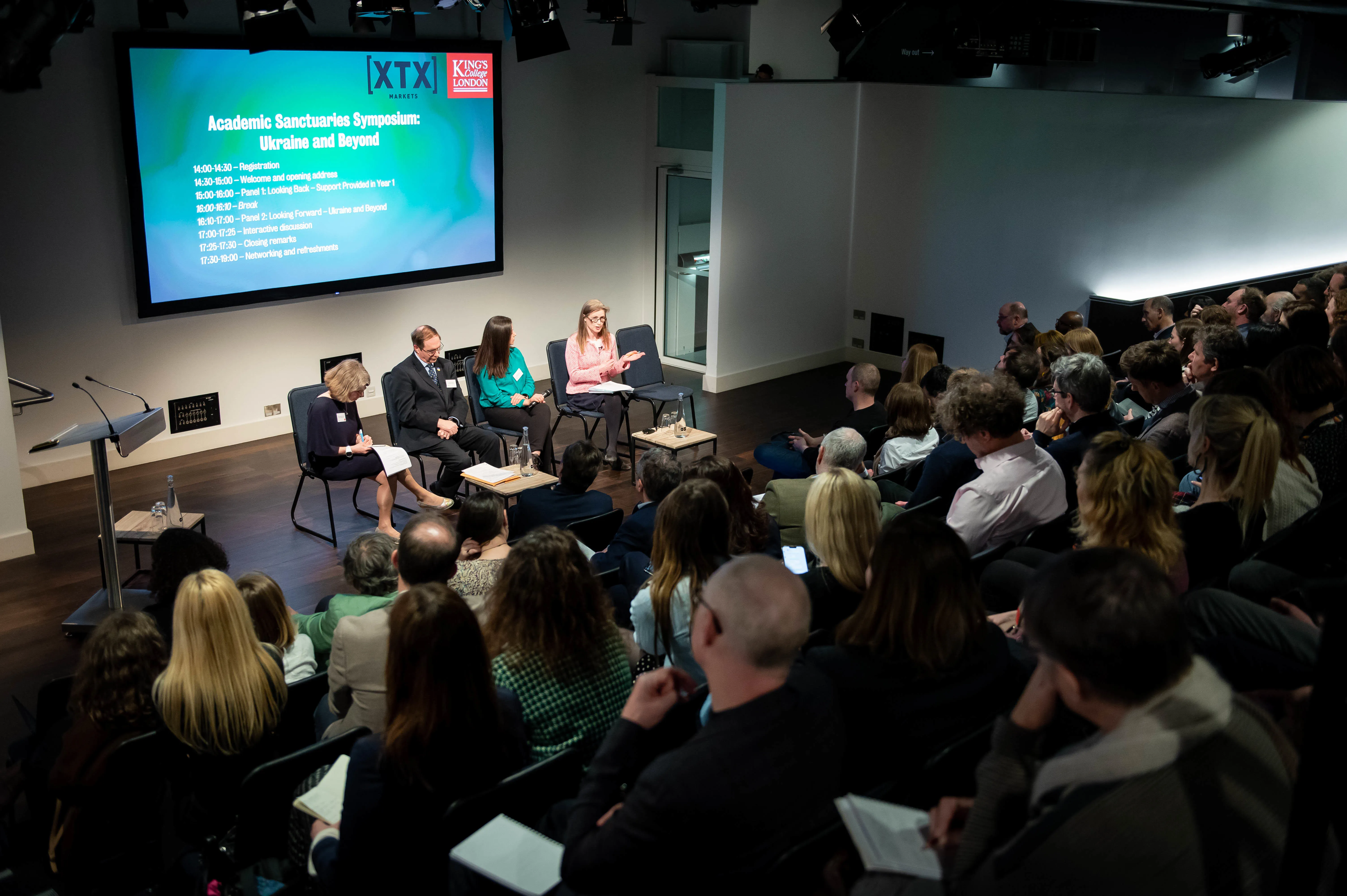
Professor Bashir M. Al-Hashimi, Vice President (Research & Innovation) at King’s, encouraged the audience to reflect on ways to secure the futures of talented students and academics affected by conflict, persecution and climate change.
We believe in the value of using our research knowledge with purpose to bring about positive change to improve lives, advance discussion and debate, influence policy and shape the cultural landscape.
Professor Bashir M. Al-Hashimi, Vice President (Research & Innovation), King's College London
Some of the key themes emerging from the event included: how to address the challenges of arriving in a new country and facing a hostile environment; how to ensure appropriate mental health and wellbeing support is accessible for all; and how to work with local government and authoritative bodies to improve existing models and policies to offer safe and legal pathways.
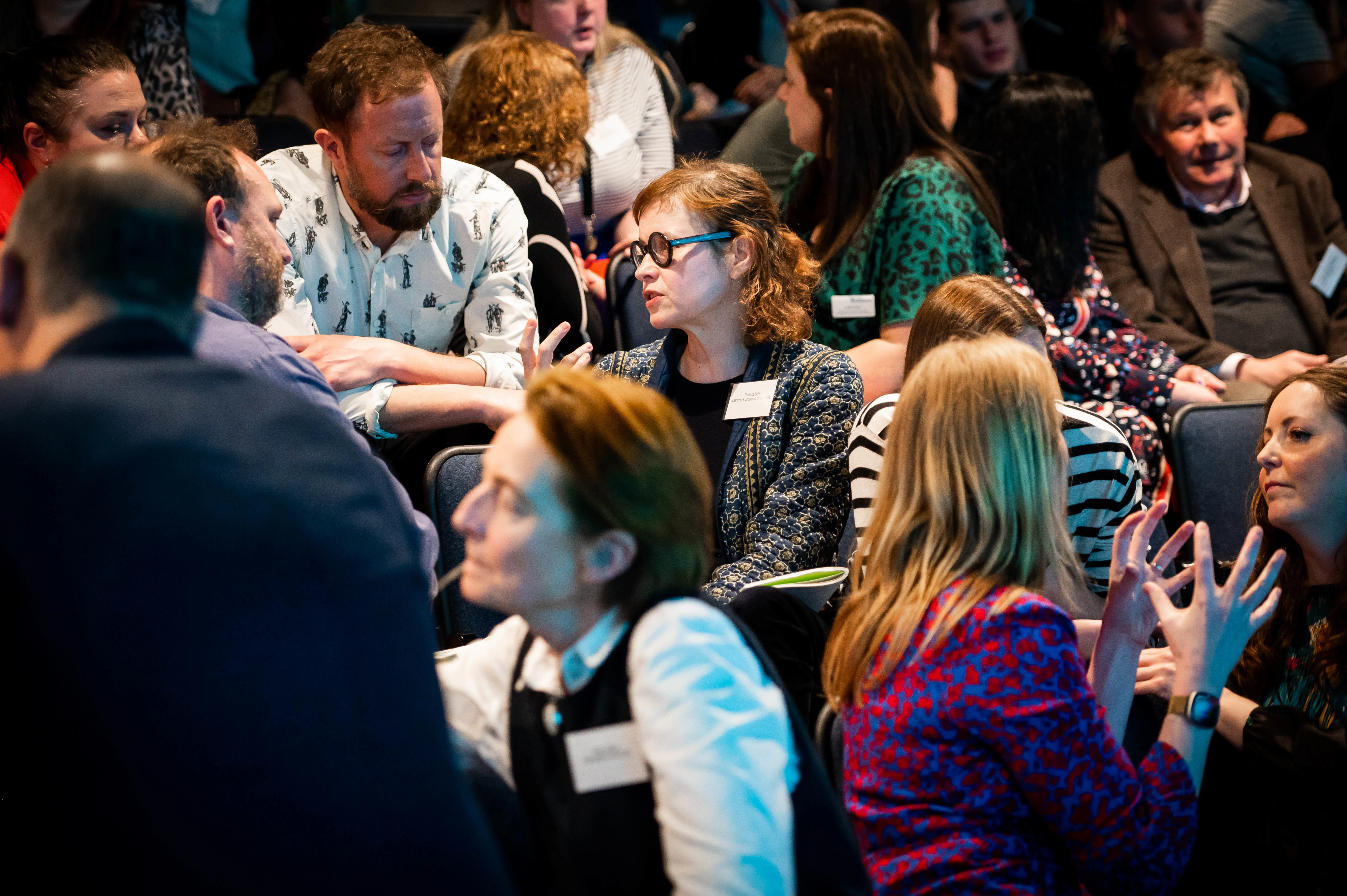
Since the war broke out, a number of universities across the UK have contributed to the support effort and created initiatives specifically for individuals impacted by the war in Ukraine to help them continue with their education or research.
Thanks to a £3 million donation from XTX Markets’ Academic Sanctuaries Fund, King’s established the ‘Sanctuary Hub’, using a unique distribution model to provide a range of studentships and fellowships. It forms part of King’s Sanctuary Programme's work to create education-led safe and legal pathways for people affected by conflict or forced displacement.
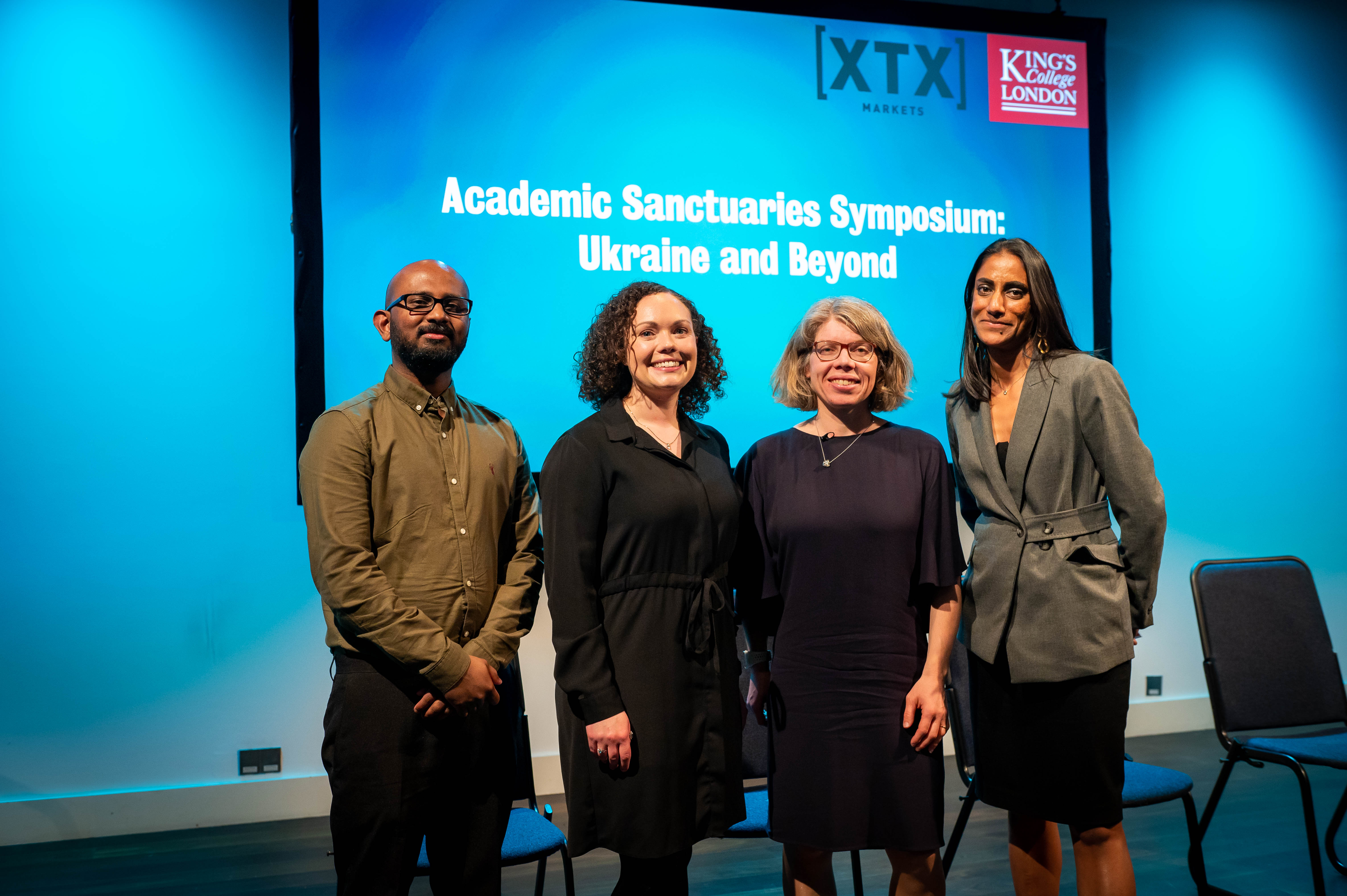
King’s has also worked in partnership to develop the University Sponsorship Model with Citizens UK, Ukrainian Sponsorship Pathway UK (USPUK), Open University, Newcastle University and the University of Leicester. The University Sponsorship Model enables HE institutions to implement the Government’s Homes for Ukraine scheme and help students and academics to find safety in the UK and continue their studies and research.
More than 60 individuals impacted by the war in Ukraine have been sponsored by members of the King’s community so far. This includes students who continue to study their degrees at Ukrainian universities online, academic fellows and recipients of King’s Sanctuary Scholarships.
We want to develop a proactive (rather than reactive) HE response to forced displacement, through collaborative models that can be scaled, replicated and adapted across the sector.
Dr Leonie Ansems de Vries, Director of the King’s Sanctuary Programme
Over the past year, the XTX Markets’ Academic Sanctuaries Fund has delivered £10.1mn in funding for academic sanctuaries projects. This includes direct funding for studentships, fellowships and research positions for 336 people across 45 institutions globally. It also includes funding for 13 innovation projects in the UK and Ukraine, which will reach hundreds more people.
XTX Markets was delighted to come together with many of our partner charities and universities at the King’s College London symposium, and to meet some of the participating students and researchers. The event also marked the opening of our Academic Sanctuaries Fund for a second round of applications, which will have a particular focus on strengthening Ukrainian universities and communities, and supporting the Ukrainian diaspora.
Simon Coyle, Head of Philanthropy at XTX Markets
Centred around the needs of displaced students and academics, King’s Sanctuary scholarships, studentships and fellowships for those impacted in the war in Ukraine are offered by a network of university partners, enabling eligible individuals to apply to a range of higher education institutions.
As part of the scheme, the students and academics receive holistic support to enable them to thrive within the university community, such as dedicated mentorship, wellbeing and accommodation support and access to English language classes.

Olena Sotnyk, who is a part-time postgraduate King’s Sanctuary Scholar in the Department of War Studies, and also advisor to the Deputy Prime Minister of Ukraine, took part in a panel discussion at the event, sharing her experience of studying in the UK thanks to the support available.
Ukrainians' access to British education is one of the key prerequisites for successful post-war reconstruction and a way to bring global academic expertise to the difficult, and unique, experience that Ukraine is going through. An investment in Ukraine's human capital is essentially an investment in the stability and security of Europe and the world.
Olena Sotnyk, Former Ukrainian MP, Advisor to Deputy Prime Minister of Ukraine & Postgraduate King’s Sanctuary Scholar
Also presenting at the symposium were representatives for the Council for At-Risk Academics (Cara) and the Cormack Consultancy Group (CCG).
Cara is the leading organisation of its type based in Europe, with a network of 135 UK universities and research institutes who provide financial support and act as visa sponsors for academics at immediate risk around the world to escape to a place of safety where they can continue their work. In response to the invasion of Ukraine, Cara’s own Fellowship Programme has already helped bring 30 Ukrainian academics to the UK and – in partnership with the British Academy – Cara helped to establish the ‘Researchers at Risk Fellowships' programme, which has provided over 170 temporary two-year fellowships for researchers in Ukraine to continue their research at UK institutions.
CCG, meanwhile, developed a model in conjunction with Universities UK called ‘Twinning’, which works by matching a Ukrainian university to an international partner of similar size and profile and facilitates the discussion between the two, to provide a host of supportive measures as necessary. There are over 100 Twinning partnerships confirmed so far.
Iryna Halasa, Visiting Research Fellow in the Department of Political Economy at King’s, was able to come to the UK from Ukraine with her two young children thanks to the Researchers at Risk Fellowships programme. Speaking after the event, Irnya said she has been continuously overwhelmed by the level of support shown to her and her family since she arrived in the UK.
I thought it would be much harder to come here with young children but I have felt so supported. My children are attending a wonderful school and I have wonderful neighbours who always want to help, even with day-to-day tasks. We hear a lot of people talk about the support for Ukraine but as a Ukrainian I really do feel it and this event is a perfect example of that support. People here really do care.
Iryna Halasa, Visiting Research Fellow in the Department of Political Economy, King's College London


